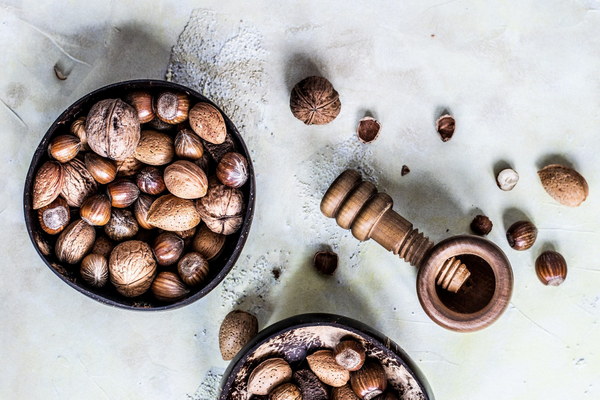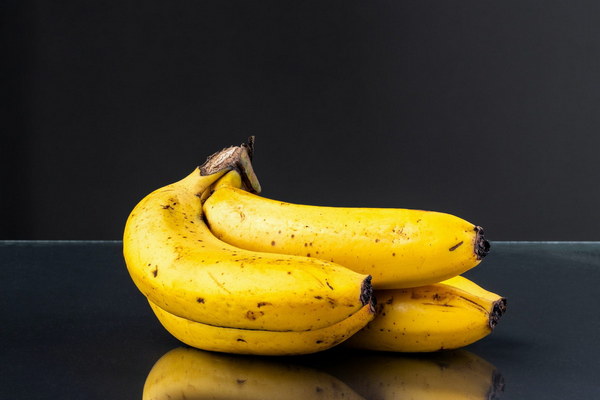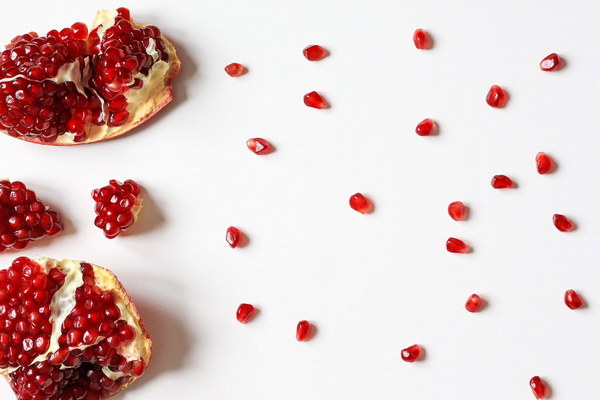Semen Amomi and Atractylodes Which is Superior for Dampness-Relieving
In the realm of traditional Chinese medicine (TCM), the concepts of yin and yang, as well as the five elements, are integral to understanding the body's balance and the treatment of diseases. Among the myriad of TCM herbs, Semen Amomi (Fructus Amomi) and Atractylodes (Atractylodes Macrocephala) are both highly regarded for their dampness-relieving properties. But which one is truly superior? In this article, we will delve into the characteristics and uses of both herbs, aiming to provide a comprehensive understanding of their efficacy in dampness-relieving.

Semen Amomi, also known as Star Anise Seed, is a spice with a sweet, aromatic flavor. In TCM, it is primarily used to treat abdominal pain, bloating, and poor appetite caused by dampness. Its warm nature helps to promote the movement of Qi and resolve dampness, thus alleviating symptoms such as fatigue, heavy limbs, and a feeling of fullness in the chest.
Atractylodes Macrocephala, commonly known as White Atractylodes, is another popular herb used in TCM for dampness-relieving. It is characterized by its sweet and slightly bitter taste, and its properties are considered to be sweet and warm. Atractylodes Macrocephala is primarily used to treat dampness-related issues such as fatigue, diarrhea, and abdominal pain. It has the ability to transform dampness into phlegm and improve the function of the spleen, thereby resolving dampness-related symptoms.
Now, let's compare the two herbs in terms of their efficacy, dosage, and usage.
1. Efficacy:
Semen Amomi is particularly effective for treating dampness accompanied by Qi stagnation. It can help to relieve abdominal pain, bloating, and poor appetite by promoting the movement of Qi and resolving dampness. Additionally, it is often used in combination with other herbs to treat chest tightness, cough, and asthma.
On the other hand, Atractylodes Macrocephala is more suitable for treating dampness-related issues such as fatigue, diarrhea, and abdominal pain. It has a stronger effect on improving the spleen's function and transforming dampness into phlegm.
2. Dosage:
The dosage of Semen Amomi is typically 3-9 grams per day, while the dosage of Atractylodes Macrocephala is 6-15 grams per day. However, the exact dosage may vary depending on the specific condition and the individual's body constitution.
3. Usage:
Semen Amomi is commonly used in formulas such as Baizi San (Eight-Ingredient Powder) and Xiaoyao San (Lesson Decoction), which are designed to treat Qi stagnation and dampness. Atractylodes Macrocephala is often found in formulas like Baihu Tang (White Tiger Decoction) and Er Chen Tang (Two-Formula Decoction), which are used to treat dampness-related issues.
In conclusion, both Semen Amomi and Atractylodes Macrocephala are effective in treating dampness-related conditions, but they have different focuses and uses. Semen Amomi is more suitable for treating dampness accompanied by Qi stagnation, while Atractylodes Macrocephala is better for treating dampness-related issues such as fatigue, diarrhea, and abdominal pain. The choice between the two herbs depends on the specific condition and the individual's body constitution.
In traditional Chinese medicine, the selection of herbs should always be based on a comprehensive understanding of the patient's condition. It is recommended that individuals consult with a qualified TCM practitioner before taking any herbal remedies.









